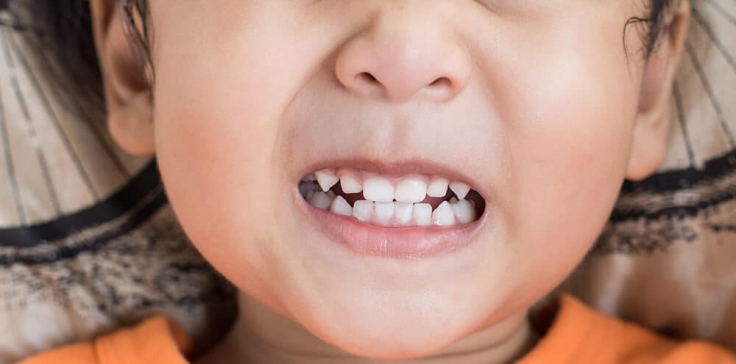In the realm of pediatric dentistry, a common concern is bruxism, or the grinding and clenching of teeth, particularly prevalent among children under age 10. This involuntary action, primarily occurring during sleep, might seem harmless at first glance but can lead to significant oral health issues if persistent.
Bruxism in children can manifest through symptoms like tooth sensitivity, jaw pain, or headaches upon waking. Parents might also notice their child’s jaw clenching or hear the distinct sound of teeth grinding during sleep or stressful situations. While occasional teeth grinding isn’t typically alarming, chronic bruxism can erode enamel, cause tooth damage, and lead to jaw discomfort.
The triggers behind toddler bruxism are multifaceted, ranging from stress and anxiety to misaligned teeth or underlying sleep disorders. Addressing these root causes is the key for effective management. For stress-related bruxism, implementing calming bedtime routines and ensuring emotional support can make a world of difference. For physical discomfort, such as teething, providing appropriate teething toys or a warm washcloth might offer relief.
Recognizing when to seek professional help is important. Persistent symptoms, pain, or tooth damage warrant a visit to a pediatric dentist. If you are concerned, we welcome you to contact our office to speak with one of our pediatric dentists.
Prevention plays a key role in managing bruxism. Establishing a soothing bedtime routine, maintaining diligent oral hygiene, and regular dental check-ups can help mitigate the risk of your child developing this condition. Early intervention and a proactive approach are vital in ensuring your toddler’s nights are peaceful and their smiles remain bright.


